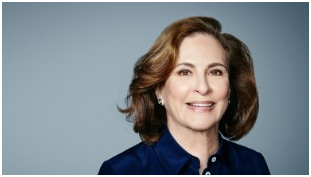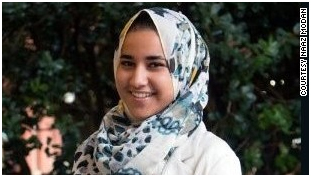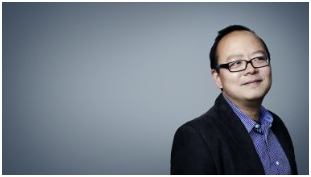Oset Babur: The biggest impediment to equality is a lack of trust in women
 As someone who attended a women’s college, I’ve been asked time and time again, often by men, what the objective of such an institution is in the 21st century. After all, women can now apply to schools whose classrooms were once off-limits and find themselves at the head of boardrooms that were once inaccessible, right? But in this century, the President of the United States brags that his star power gives him rights to women’s bodies, as a trusty tool in committing sexual assault, and in this century, our first instinct is to subject repeatedly every decision women make (whether it be about their reproductive health, or speaking up against abuse) to an intense level of scrutiny that could do wonders if it were put to use in, say, anti-gun legislation, universal health care or education.
As someone who attended a women’s college, I’ve been asked time and time again, often by men, what the objective of such an institution is in the 21st century. After all, women can now apply to schools whose classrooms were once off-limits and find themselves at the head of boardrooms that were once inaccessible, right? But in this century, the President of the United States brags that his star power gives him rights to women’s bodies, as a trusty tool in committing sexual assault, and in this century, our first instinct is to subject repeatedly every decision women make (whether it be about their reproductive health, or speaking up against abuse) to an intense level of scrutiny that could do wonders if it were put to use in, say, anti-gun legislation, universal health care or education.
The biggest impediment to gender equality I see in 2017 is a universal lack of trust toward women. This distrust is reinforced every single time a senior executive repurposes a female colleague’s ideas as his own, and every time someone without the ability to become pregnant makes a decision on behalf of those who can. And while it’s true that trust is usually earned, it just isn’t up to women anymore to earn this trust; it’s up to everyone else (from Harvey Weinstein to Donald Trump) to show that they are deserving of it.
Oset Babur is an editor and culture writer whose work has appeared in Teen Vogue, Vice and The Guardian.
Peggy Drexler: Women aren’t turning out for feminism
 It’s commendable, of course, that after the raft of horrendous sexual harassment allegations against Harvey Weinstein and other major power brokers in the media, more and more women are speaking out against the men who abuse positions of power at their expense. Or against the industries that compensate men at a higher level than women. But the root of the problem lies much deeper.
It’s commendable, of course, that after the raft of horrendous sexual harassment allegations against Harvey Weinstein and other major power brokers in the media, more and more women are speaking out against the men who abuse positions of power at their expense. Or against the industries that compensate men at a higher level than women. But the root of the problem lies much deeper.
When Hillary Clinton lost a presidency to a white man far less qualified, far less prepared and far more volatile, it became clear that women were perhaps just as culpable as men in the fight against systemic inequality. And not just the 53% of white women who voted for Donald Trump — many who did so because they were uncomfortable voting for a woman, or could not get past the sexist stereotypes that were continually hung around this woman. But also the many millennial women who, too, resisted Clinton because of her gender.
These are women who aren’t turning out for feminism, or who don’t take it seriously — who view the fight as outdated because they never had to fight it themselves. Or so they think. Because the fight is far from over. The allegations against Weinstein are only the latest expression of this. My greatest hope is that those who have the power, and need, to stand up for women will realize it’s not only entirely relevant, but essential that they do so. My greatest fear, however, is that they will not.
Peggy Drexler is the author of “Our Fathers, Ourselves: Daughters, Fathers, and the Changing American Family” and “Raising Boys Without Men.”
Naaz Modan: Being judged by what you wear
 Shortly after I decided to wear the hijab, I noticed a shift in how I was perceived in public and professional settings. My contribution to academic discussions as a college student was received with surprise at my intelligence, and now my work as journalist is oftentimes taken with a grain — or mountain — of salt by readers. Comments I’ve received range from “The author of this wears a scarf” to “We don’t need to hear about America’s problems from you in a hijab.” My perceived intellect and the amount of influence I command in a room are dictated in others’ minds by the clothes I wear.
Shortly after I decided to wear the hijab, I noticed a shift in how I was perceived in public and professional settings. My contribution to academic discussions as a college student was received with surprise at my intelligence, and now my work as journalist is oftentimes taken with a grain — or mountain — of salt by readers. Comments I’ve received range from “The author of this wears a scarf” to “We don’t need to hear about America’s problems from you in a hijab.” My perceived intellect and the amount of influence I command in a room are dictated in others’ minds by the clothes I wear.
There is a similar struggle on the opposite end of the spectrum, where a woman’s value and experiences in the workplace are determined by the amount of skin she chooses to show and how she chooses to show it.
On one end, if she shows “too little” or chooses to cover with a scarf, she is considered sexually oppressed and intellectually stunted, whereas if she shows “too much,” she is reducing herself to her sexuality and ultimately asking to be assaulted. Nowhere is this clearer than in the most recent case of Harvey Weinstein, where the women who came forward were criticized for how they presented themselves.
This kind of gender-based power dynamic permeates every woman’s experience to some extent, whether she is fully covered or not, sometimes even before she enters the workplace.
Most recently, I was advised to exclude my photo from job applications — it is much easier to land an interview if I’m misperceived as a male from an ambiguous background whose name might be a variant of “Nas” than as a visibly Muslim woman who covers. I have wondered more than once how many times I got rejected from life-changing opportunities because of the way a male on the other end of the hiring process judged my worth based on the way I dressed.
Naaz Modan is a content editor for Muslim Girl, a publication focused on Muslim women’s issues and empowerment.
Jeff Yang: Whose stories get believed
 I feel like there wasn’t any singular moment when the degree of work needed was suddenly made plain. It’s always been there — but always suppressed, overlooked and dismissed. I think that the reporting around sexual harassment in Silicon Valley, in which a disproportionate number of the victims stepping forward were Asian-American women, in particular hammered home to me that there are layered aspects to who’s targeted, how they respond, whose stories are believed. Women of color are most frequently ignored, and Asian-American women frequently subjected to stereotypical expectations of silence and passivity.
I feel like there wasn’t any singular moment when the degree of work needed was suddenly made plain. It’s always been there — but always suppressed, overlooked and dismissed. I think that the reporting around sexual harassment in Silicon Valley, in which a disproportionate number of the victims stepping forward were Asian-American women, in particular hammered home to me that there are layered aspects to who’s targeted, how they respond, whose stories are believed. Women of color are most frequently ignored, and Asian-American women frequently subjected to stereotypical expectations of silence and passivity.
That intersectional context is too often set to the side in these debates, and it shouldn’t be.
Jeff Yang is a frequent contributor to CNN Opinion, a featured writer for Quartz and other publications and the co-host of the podcast “They Call Us Bruce.” He co-wrote Jackie Chan’s best-selling autobiography, “I Am Jackie Chan,” and is the editor of three graphic novels: “Secret Identities,” “Shattered” and the forthcoming “New Frontiers.”
Source: CNN







 The Top Viral YouTube Videos of 2017
The Top Viral YouTube Videos of 2017 The last Konyak headhunters of Nagaland
The last Konyak headhunters of Nagaland An orbiting message of peace
An orbiting message of peace Meet R.N. Ravi, who is mediating peace with the Nagas
Meet R.N. Ravi, who is mediating peace with the Nagas










Leave a Reply
Your email address will not be published. Required fields are marked (required)